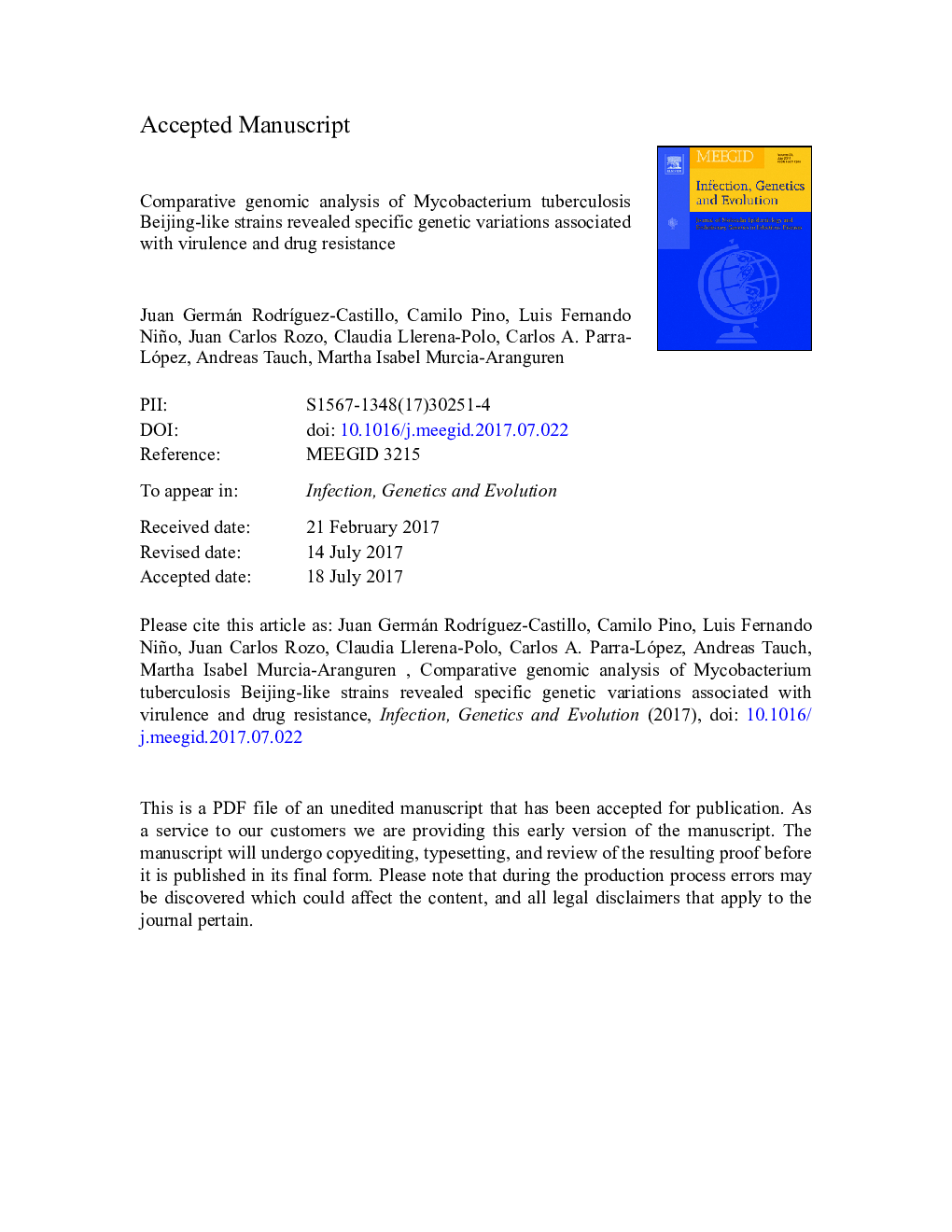| Article ID | Journal | Published Year | Pages | File Type |
|---|---|---|---|---|
| 5590551 | Infection, Genetics and Evolution | 2017 | 34 Pages |
Abstract
Isolates of the Mycobacterium tuberculosis lineage 2/East-Asian are considered one of the most successful strains due to their increased pathogenicity, hyper-virulence associated with drug resistance, and high transmission. Recent studies in Colombia have shown that the Beijing-like genotype is associated with multidrug-resistance and high prevalence in the southwest of the country, but the genetic basis of its success in dissemination is unknown. In contribution to this matter, we obtained the whole sequences of six genomes of clinical isolates assigned to the Beijing-like genotype. The genomes were compared with the reference genome of M. tuberculosis H37Rv and 53 previously published M. tuberculosis genomes. We found that the six Beijing-like isolates belong to a modern Beijing sub-lineage and share specific genomic variants: i.e. deletion in the PPE8 gene, in Rv3806c (ubiA) responsible of high ethambutol resistance and in Rv3862c (whiB6) which is involved in granuloma formation and virulence, are some of them. Moreover, each isolated has exclusively single nucleotide polymorphisms (SNPs) in genes related with cell wall processes and cell metabolism. We identified polymorphisms in genes related to drug resistance that could explain the drug-resistant phenotypes found in the six isolates from Colombia. We hypothesize that changes due to these genetic variations contribute to the success of these strains. Finally, we analyzed the IS6110 insertion sequences finding very low variance between them, suggesting that SNPs is the major cause of variability found in Beijing-like strains circulating in Colombia.
Related Topics
Life Sciences
Agricultural and Biological Sciences
Ecology, Evolution, Behavior and Systematics
Authors
Juan Germán RodrÃguez-Castillo, Camilo Pino, Luis Fernando Niño, Juan Carlos Rozo, Claudia Llerena-Polo, Carlos A. Parra-López, Andreas Tauch, Martha Isabel Murcia-Aranguren,
